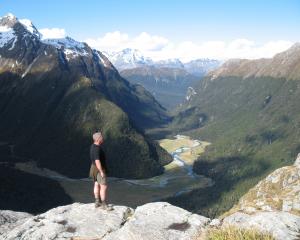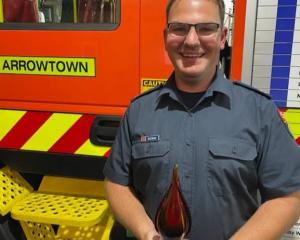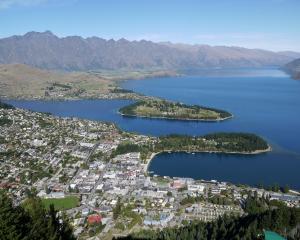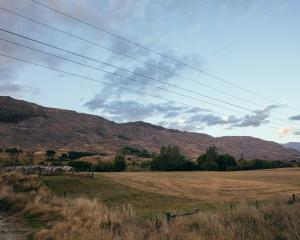
Uninhabited, covered almost entirely in glaciers and surrounded by cliffs, the volcanic island is the territory of Norway and sits about 2700km from the Antarctic in the Southern Ocean.
ABC News last week reported what is thought to be the first exploration of the island's interior when Mr Halstead last month guided a small group of people to its 780m summit.
The 40-year-old is based in Queenstown when not guiding trips to the Antarctic and around the world, and is head of the ski patrol at the resort's Remarkables Ski Area.
A blog by expedition member Jason Rodi describes the expedition crew of 25 people leaving Cape Horn, Chile, on February 8, sailing past South Georgia Island and Saunders Islands on the way to Bouvet Island.
About 4am on February 20, two Zodiac boats approached the island, found a rare beach, and landed, all the while being battered by waves and avoiding "huge" fur seals.
The team then scaled the 500m ice cliffs, opening up what Mr Halstead described to ABC News as a "7km-long climb through crevasse-ridden ice slopes to the summit pyramid".
At midday, after following GPS co-ordinates while battling against a snowstorm, they reached the summit.
"The feelings were initially disbelief," he said.
"Had we really got to the top of the most remote piece of land on Earth? And then the realisation that no-one had been here before," Mr Halstead wrote.
He then became the onlyperson to climb the island twice after guiding another fivepeople up to the summit the following day.
Mr Halstead prepared for the trip by examining Google Earth images and looking at old maps to find their best chance of making a successful landing.
"I then spent each day on the boat prior to reaching the island running through everything from emergency scenarios to crevasse rescue and climbing skills.
"The nearest help was weeks away," he said.
The expedition plans to reach the end of its 34-day journey in Cape Town on Monday, and hopes to stop in the "virtually untouched" Prince Edward Islands and Crozet Archipelago.












